0
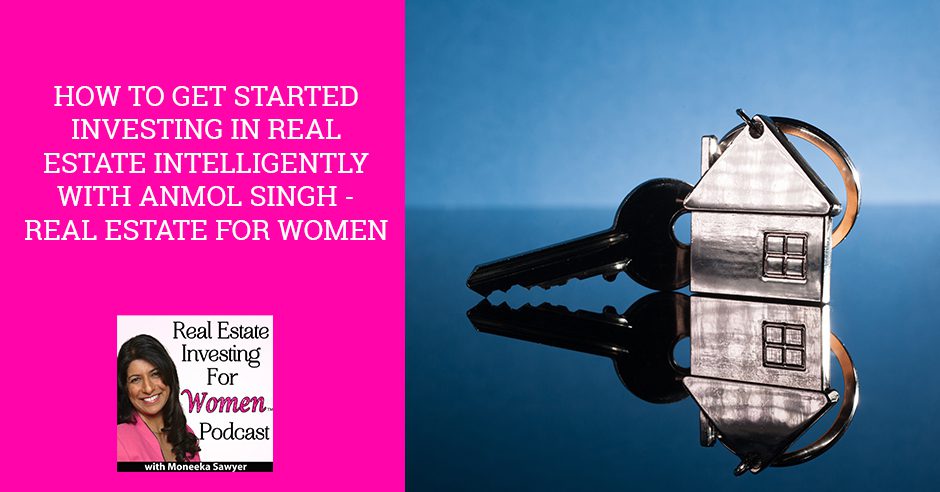
There are so many deals you can find out there. You just have to know how to invest in them intelligently, so you become a real estate success. In this episode, Moneeka Sawyer interviews Anmol Singh, considered as the leading trade psychology expert and founder of Live Traders, which is now voted as the number one trading educating firm for three years in a row. Anmol shares his expertise to guide us on how we can invest in real estate intelligently where deals are brought to you rather than you hunting for them. How can we obtain the capital to invest? How do you trade stock to invest in real estate? What are the different areas to invest in, and what are their pros and cons? How do you get started in this industry? Anmol answers all of these and more, so tune in to this episode to not miss out!
—
Listen to the podcast here
How To Get Started Investing In Real Estate Intelligently With Anmol Singh – Real Estate For Women
Real Estate Investing For Women
I am excited to welcome to the show Anmol Singh. Anmol made his name as a high paid consultant in the trading and investing industry. He launched Live Traders in 2015, which is now voted as the number one trading education firm for three years in a row. He has coached and trained over 1,000-plus traders and investors, some of whom have now gone on to run their own hedge funds. He is considered the leading expert in the trading psychology space. Having helped thousands of traders all over the world, dealing with psychological and behavioral issues that arise when high stakes are on the line. He remains an avid stock market and Forex trader, and spends his day working with students of his trading firm, Live Traders and continues to financially back them. He also is involved with other entrepreneurial ventures and franchise stores in addition to maintaining an international real estate portfolio. Anmol, welcome to the show.
Thanks for having me. I’m looking forward to chatting with you.
I went on my world trip in ’99. About a few years before that, I was a day trader with options. I loved it. That’s how we paid for our trip around the world. We packed up everything, put some backpacks on our backs, and for six months we headed out into the world. The stock market paid for that. While doing that, my other side hustle was in real estate. It’s interesting how the two can play together. In my household, the way things work is my husband handles a stock portfolio. I’m not an active trader anymore, but I manage all of the real estate. The two can go hand in hand. They don’t have to, but I’m excited about having this conversation with you because I haven’t met anybody else that does this trading and real estate thing, and making it both successful. They do take a level of focus, both of them. Could you tell us a little bit of your story and how you got to where you are?
I started trading in college. I went to Brunel University in London so I was in my college, and then it came a year where you have to start applying for internships. I was like, “I’ve got a great Business degree. I’m going to get a job easily.” I started applying everywhere, but I wasn’t able to get a job for some reason. I got a bunch of interviews but never secured a job. I was like, “I need to start to probably look elsewhere and maybe make my own career.” That’s how I was introduced to trading. By being online and searching about it. I started learning. I found one of my mentors, Jared Wesley, who taught me how to trade. He was trading already for fifteen years.
He took me under his wings and mentored me. Three years down the line, now he’s my business partner with our venture at Live Traders. I was like, “I’m your case study right here. We already did it. You already taught me and I’m making money now as a trader. Clearly your education is working. How about we team up? You can do the education side. I can handle the business side of things.” That’s how Live Traders was born. We’ve been now educating and teaching other people using the same model that he used to teach me. I have been trading for several years now. I’ve been trading all my life.
You’ve been trading for several years. You’ve been through serious downturns too?
Yeah. The first year of trading was all downturns. Nobody made it in the first year.
It’s interesting because if you know stock, you know that you can make a lot of money on the downturns. It’s much more fluid than real estate. Real estate is my foundation. It’s like the brick wall. We keep adding bricks. It keeps going up. The stock market is much more fluid, much more liquid, much more volatile. It depends on how you want to look at it. I do love the stock market also. From your perspective, tell us how to find a good deal. Let’s focus on real estate.
In real estate, the thing with good deals is that people have a misconception that they can just go online and they can find a great deal, which you can sometimes. There are a lot of good deals online available. You just have to be willing to search. You have to have the mindset of not what the property looks like right now, but what it’s potential could be. Maybe there’s more square footage. Maybe I can add something here. That’s how you look for good deals. You have to have that vision of what it could look like. There are a lot of properties that I’ve had that were maybe $1,000 a month rent properties. We took those. We changed the whole layout. We changed the kitchen. We made it a luxury apartment that you can now get maybe $6,000 to $7,000 or even getting $1,000 for.
You have to look for what added value can you make to the property. That’s how you could find a good deal. The other thing which we can talk about down the road is building a network so the deals are brought to you rather than you hunting for deals online. If something is online, my guess is people have already contacted the property owners. Other people already looked at it because you can see the website traffic, X number of people have already looked at the property. Is that a good deal? Maybe not. You have to build a network and you have to start throwing out fillers and have these people who are looking out for the deals for you and bringing them to you for a percentage of something. You have to build a dream team, which we can touch upon later down the segment.
In EXTRA, we’ll do a deep dive on how to build a dream team so the deals come to you rather than you chasing them. I love that idea. Let’s talk a little bit about obtaining the capital to invest in real estate.
Obtaining the capital, there are many different ways to do that. When I started trading, the capital for investing in real estate for me came from trading. I was making money as a trader. I was having those profits, which it didn’t make any sense to me to keep it in the bank account, which is producing nothing for you. It didn’t even make sense to add to my stock portfolio because I already had a good amount of money in there. What I did is I took my income from my trading and park it into real estate properties. What people can do for capital is think about what you can do 1, 2 or 5 years from now. Start saving a portion of your salary or your income that you’re getting, so that in 1, 3 or 5 years’ time, you’re in a position to invest in something.
In the meantime, you can hone your skills. You can get good at it. You can study. You can get to your knowledge so that when you do have the capital, you’re able to invest. The other way you can do that is through a network. You have to be willing to network. You have to be willing to go to these real estate meetups or your local real estate organization. I know people don’t like going out of their house for something physical. It’s a lot of people. I don’t know what to say. You might feel anxious, but you have to be willing to put yourself out there. That’s how you build connections with people.
Trust me, people are out there looking for deals. They want good deals. They want somewhere to put their money in. If you can be the guy or girl who could find them the good deal, raising money is easier than what people think it is. You just have to find a good deal. It all starts through the deal. If you have a good deal, the money will come, but you have to be willing to go out there and go to these meetups, go to these REO meetings and all of that.
Both of those are good tips. The one thing that you said that I want to highlight is it’s okay to take the time to build the capital. People are eager to, “I want to get in right now.” Yes, I will say it’s always a good idea financially to get in. If you don’t have the capital to do it, you don’t want to lose hope because you can’t do it right now. You can plan for your future and that’s a good way to go. You’re planning and saving to build that capital to do an investment. Learn along the way so that when you’ve got the money, you’re ready to hit the ground running. If you’ve got a side hustle, you can use all of that money for the side hustle to save and then you get there a lot faster. We’ve talked about networking a lot in the past, so that’s a great way to find capital. Thank you for that. Give us your perspective cashflow with real estate.
Every real estate investor’s dream is to get a property that’s cashflowing. There are also realities within different markets. If you’re in California, New York or the high-income state, it’s possible but it’s hard to come by. There are certain states where cashflow is 1, 2, 3. You go somewhere in Arizona, which is becoming hard now as well. You go to Texas. There are certain places you can get cashflow. Cashflow is important but if you’re in New York like me, cashflow is not the primary goal. The primary goal is to get the income to pay off the property for you. The approach that a lot of investors use here is that all they need is the downpayment.
They’re building a portfolio for real estate. They have the money for the down payment and have enough rent that’s covering your taxes and your mortgage. If it’s covering your taxes and mortgage, it’s not technically producing cashflow, but somebody is paying off the property for you. If you’ve got a 10-year lease, 15-year lease after which a property is being paid off, all you put in was that downpayment and somebody just paid off the property for you. In my books, it’s a win if you think long-term. Even if you build a portfolio of 10, 15 properties that people are paying for. You only put in one property’s worth of money in different down payments. In 10, 15 years’ time, once all those properties are paid off, look what happens to your net worth.
Suddenly from putting in a $20,000, $30,000 down payment to now having a portfolio of ten properties that’s increasing your net worth overnight, but it takes about ten years. That’s the approach I would use if you’re in New York or California or somewhere in those areas. For other areas, it’s the same thing. Look for, “Here are my expenses. Here’s what I’m paying for mortgage. Here’s what I’m paying for insurance and taxes.” As long as you’re getting more than that. You can list it for much higher than that as a rent, if the area warrants it for. Don’t lose hope if you’re not getting that rent, just get them to pay the property off. In ten years’ time, you’ll have a good portfolio that everybody else paid for.

Investing In Real Estate: Sometimes, there’s a lot of good deals online available. You just have to be willing to search and think not of what the property looks like right now but what its potential could be.
Also, you get cashflow on it then.
That’s when the game gets fun because now everything is paid off and you’re getting good cashflow from different properties.
Could you tell us a little bit about where your properties are?
I have the least amount of investments in New York, mostly it’s commercial real estate. I’m in the process of negotiating a lease. Hopefully, it should be signed. That property will produce cashflow. It’s going to make about over 8% cash-on-cash return. For example, my mortgage on that would be $5,200. I paid taxes $3,000 or $4,000, but the rent I’m probably going to get is going to be $12,000 or $13,000. That property is producing cashflow. How did I get there to make that cashflow is I added some value to the building. It was an automotive company that wanted to use that as a repair shop. I installed the lifts already in there. For everybody coming in who wants to run that business, it’s a gold mine. I don’t have to install all this equipment. It’s already installed for me. I’ll pay you extra. That’s how you get the cashflow. That’s one of the properties. Most of the portfolio is in India. My family and me were big into real estate in India. We have commercial real estate where we rent out to Microsoft office space, State Bank of India. That’s all commercial real estate. We have a lot of residential.
All the new developments that come in, we try and acquire at least a couple of properties on those developments. In London, we have small flats near the airport, which are handy because they always rent. We’d never had a tenant leave and weren’t able to fill it because it’s near the airport. Even airlines want their staff to stay somewhere. It’s easy to lease that out. That’s where we primarily have our investments, in India, in the developing areas, the capital states. In London, we have a few flats around the Heathrow Airport. In New York, we have the commercial automotive service station.
Which part of India are you in?
In Delhi.
We have a lot in Pune. The thing that I wanted to point out here and what I thought was interesting about that is he is in very expensive markets. India is a little bit more affordable for us Americans, but you wouldn’t believe the way that property is skyrocketing there. We sold something over there. These are high-cost markets. This is a different strategy than most people talk about. It’s a strategy that I’ve also followed, which is buy something. Don’t take a negative cashflow on it. Don’t worry too much about cashflow. Make sure that it’s getting paid down. Eventually, you benefit from the cashflow. It’s a little bit of a longer-term strategy, 10, 15, maybe even 20 years.
On the back end of that, you’re in markets where the rents are high that with just a few doors, you can make a retirement level cashflow. This is something that I love. I don’t like managing a lot of doors. Doors meaning houses or apartments or whatever. I don’t like managing a lot of properties. For me, I like the idea of I’ve got a few high-end so I do all executive properties. I do high-end properties so that they’ll start to cashflow, and I’m doing business with people that are going to stick around. They’re going to keep the house well. It’s going to be easy for me to manage. I don’t have too many of them, but I’m making a retirement cashflow.
It’s low maintenance. You get better clients. They are going to take care of the property. There are other markets too. This is not to say that there are other markets people can play in. There are people playing in other markets. For me, the type of tenant is important because they’re going to take care of the property. That means fewer expenses for you over time to maintain the property. Whereas you could play in the high-volume market, but then with a high-volume market comes more work. It comes more maintenance. It gets a different quality of tenant. You have to take care of the property. I’m in the same boat as you are. I would much rather have fewer doors but have high-quality tenants that they know they’re going to be there for a while.
Talk to us about the way that you’ve done this. How did you trade stock to invest in real estate? How can other people do the same?
I started with my partner, Jared Wesley, the guy who taught me how to trade. He did the same thing. When I started, I was pretty young in trading. I’m like 19, 20 years old. I was looking up to him. He was trading in the markets for many years and he did the same thing. He has a lot of real estate investments. He was taking his 10%, 20% of whatever he’s making from trading and putting it in a rainy-day investment account. He kept building that by adding 10%, 20% every month. Once he had a good sum, he’ll say, “Let me buy that property.” That’s how he was investing. I learned that same methodology to do that.
For example, he has a lot of industrial real estate, which is a market that I haven’t gone in. It’s great because in industrial real estate, you’ve got clients like FedEx that have the whole lot that they’re using. They’re not going anywhere. They’ve been with him for many years. If anything bad happens even to the roof, which he has to technically replace, he could still have leverage. He’s like, “I don’t want to replace it. Are you going to leave?” They are not going to leave. They’re going to replace it. They’re going to work with you, “It’s okay. We’ll pay half. Let’s fix it.” It’s more costly for them to move and leave. I’ve learned in that market. I follow his footsteps.
I didn’t do industrial real estate, but I did more commercial and residential because that’s what I understood. That’s another thing. People should invest in what they understand. Industrial might sound good or mobile homes might sound good to you. If you don’t know the market, don’t invest in it. That’s why, even though New York is a high-income or high-maintenance market, I would rather invest here because I know the market and I know that it’s not going to be ups and downs. It’s going to be stable. Your money is secure. Whereas in a high-risk market, you can get a better reward for your money, but in the downturns, it’s also going to be much faster. It’s a trade-off that people have to make a decision for themselves as to what fits their investment criteria.
Do you think the risk is more based on market or investment class?
Both market and class. If it’s an upcoming market and Amazon is opening a new office space there, the market is going to go higher. What if there’s temporary space that they’ll leave? Suddenly all those jobs get pulled out of the rug and then that affects the whole area. For New York, there are many businesses, many jobs that few companies leave. It’s not going to affect the market. New York is crowded. In certain markets, let’s say you invest in a suburb where there’s one big factory, one big company. You’ve got a risk. If that company leaves, a lot of jobs in that area leave with it. That causes the rents to go down. Subsequently, your cashflow would go down.
They’re much more prone to economic downturns. It’s something that I think is going to happen in the next few years. Those high-risk areas are going to be the first ones where people are going to pull their money out. They’re going to be like, “I’ll take 0.5% return in New York. At least my money is safe rather than looking for 10%, but potentially losing 20%.” High-risk markets, you get a high reward, but you’re taking high risk for the high reward.
How about classes like industrial, commercial, residential?

Investing In Real Estate: One super tip to get started in investing is to be an active searcher for deals.
Going forward, residential, industrial is the way to go. Commercial is going to be the next one that’s going to get caught up in what’s going to happen. That’s primarily because retail companies are declaring bankruptcy all over the place. Even Hertz Car Rental, Victoria’s Secret, and Nordstrom are declaring bankruptcy. All these retail strip malls are going to be affected down the line. More importantly, what people aren’t thinking in commercial, office space is going to be heavily affected. People are getting the sense like, “Zoom is not that bad. We could do this.” We’ve been doing it for a few months now. People are now used to it. They’re like, “We can do that. We could cut our overheads. I don’t think we need that much office space. I don’t think we need to have these big office spaces. Tuesdays are work from home days.”
A lot of that is going to happen, which is going to mean that people are going to need less and less office space. People are going to feel more and more comfortable working from home. That’s the trend that it’s going. There is no doubt about that. That’s going to be heavily affected. For me, I’m not investing anything to do with retail or anything to do with office space. Those are going to be hurt the most. It’s already starting with ripple effects.
Even in India, certain tenants would be like, “We can’t pay rent this month because of COVID-19.” They quote an act of God law. All this stuff happens. You’d have to go through all of that. There are ripple effects for that. If people don’t pay rent, those people won’t be able to pay their mortgage. That’s what happens. The bank is going to take the property. It’s a ripple effect, which usually takes a few years to kick in. What’s happening now, people will start feeling it a few years from now when the ripple effects take place.
I had a friend that was like, “Moneeka, what do you think about commercial?” I’m like, “I’m going to stay far away from that.” Commercial as in multiunit residential, I’m okay with, but anything to do with retail, I’m watching them on the sidelines. I haven’t looked at industrial. That’s an interesting thing. Did you want to expand a little bit on that?
Industrial would mean, let’s say you have warehouses that Amazon can use, which is a great investment for a lot of my friends. They had these warehouses for a long time. Nobody wanted it. Now Amazon is offering crazy amounts for those warehouse space because their goal is to have same-day deliveries everywhere. For them to have the goal of same-day delivery, they need to have warehouses in different locations that can deliver. Warehouses or truck spaces where people can park their vans and trucks, fleets can be parked. Those kinds of industrial real estate are what my circle has seen the best investments in. It’s something you can find, which is a nice space for a warehouse that could be used or something where a lot of fleets of vans and trucks and all that could be parked like FedEx. That would be what I mean when I say industrial real estate.
Do you mean storage?
Storage is good too, but I like relying on businesses more than people. Stale storage and all that, I’m not a big fan of. I don’t like relying on people. I like relying on businesses like FedEx or Amazon or something like that that I know are good. They’re public companies. They don’t want any of these issues. They’re going to be okay. I would focus on that.
Do you mind me asking, Anmol? This may be a personal question and you can say, “No, I’m not going to say this here.” How much did you start when you were trading?
I started with $10,000 that I borrowed from my father, which I lost most of it in a few months.
Tell us a little bit more about that story and the journey to get to where you can start investing in real estate.
I left India. I went to London. I was studying my college degree over there. In the second year of university, I came back. I’m like, “I know what I want to do. I want to trade the stock market.” I’m like, “I’m serious.” They’re like, “Why don’t you get a job? You’re getting the degree. You’re on the path. Why don’t you apply internship?” I’m like, “I did but I didn’t get anywhere. I’m going to try this.” My dad probably thought it was going to be a good lesson for me to learn how not to mess with money. He’s like, “I’ll give you $10,000 to try it out.” I’m like, “Thank you.” Six months later, I had maybe $2,000 or $3,000 left out of those $10,000.
That was a learning lesson, but I built it back up and how I build backup is I started writing articles because I was good with research. I wasn’t good with a mindset. I was researching and writing articles for Yahoo! Finance and they were paying $150 an article. I was in my dorm room in college. It was $150 an article. I write ten of these a week. I started writing them almost in college in my dorm room. They were paying $2,000, $3,000 a month. I built my capital back up and then I was like, “I’m going to do it properly this time.”
How long did it take you before you had built up enough that you could start investing in real estate?
That probably I would say is year four when it started to kick in. I still had money before, but I didn’t have confidence to put it in real estate. Year four is when I was speaking to a lot of people, then I got the confidence, seeing other people invest in those properties. New York, the first investment I made was in 2015, which is the commercial property that I ran a business on it as a franchise business. I ran that business for a few years and I was like, “I can make more money renting it.” I close that business and now I’m renting it and hopefully, the lease will be signed.
You took $10,000, got it down to $2,000 or $3,000 and then you grew it back up. When did you start investing again with how much?
In the same year. I was just a beast. Yahoo! Finance didn’t care how many articles I write. I’m going to write all of them. I went back in exactly with $10,000, but I spent $6,000 to purchase some courses and stuff like that. I still played with $4,000, but the good part was when I connected with my partner. They had a firm where they were backing the traders that graduate from their program. I spent $6,000 and graduated from their program, and then the firm hired me as a trader. They gave me $50,000 of their capital to trade in exchange or like 70/30. We used to split the profits. They had levels that you have to go through, level 1, 2, 7, all the way to level 10, where they were giving you $10 million. I went from level 1 to 7 in a year’s time. In level 7, I was trading $3 million off their capital and we were splitting profits 70/30. That’s when I was making some good money. I was trading with their money for a long time. One or two years I’ve traded with their capital.
Is that the structure that you offer in your own trading company now?
Yeah. We offer that when people graduate and we see that they can do it, then maybe I can put some of my money behind him. If they’re trading similar to me, they’re trading my strategies, I know they’re going to eventually do well. If they do everything correctly. I do the same model. I’ll take 30% of your profits in exchange for providing you the funds.

Investing In Real Estate: One strategy to be successful in real estate investing is actually doing it. The way to do that is to start making phone calls.
I haven’t had anybody like this on this show. Thank you.
Thank you.
Anmol is Indian as am I. You come from this entrepreneurial background. Our parents all say, “You have a good degree. Why not get a good job?” We have this entrepreneurial spirit. It’s fun to talk to somebody else like that. Thank you.
The feeling is mutual.
Anmol is going to be sharing with us how to build a dream team in EXTRA so that you can have deals coming to you rather than you having to hunt for them. I’m excited about that conversation. Could you tell people how they can get in touch with you?
The best way to get in touch with me would be through my social media channels, Instagram or Twitter. My username on both of them is the same, which is @DeltaNinety. It’s a trading terminology for options traders. Go to PreppingForSuccess.com/book, where there are some free guides and things for you.
He is giving away a free chapter of his book with 60-second success show videos every alternate week. He’s got some videos and a free chapter of his book. He also wanted to offer you something regarding trading. Do you want to talk a little bit about that?
If you feel interested in trading and you’re like, “Maybe this could be something that I might be interested in,” and you want to learn more about trading or get started in the financial markets, the best way to go would be to LiveTraders.com. You’d be able to download a free eBook on our website along with some more information. If that’s something that interests you, you could even call the office and have a fifteen-minute strategy session with someone from our team. They can tell you if it’s even right for you or not right for you because it’s not right for everybody. They might say, “Maybe come back later,” or they might say, “This is where you can start.” That would be the place to go.
Thank you for that. Are you ready for our three rapid-fire questions?
Yes.
Anmol, tell us one super tip on getting started in real estate investing.
One super tip to get started is to be an active searcher for deals. Always be searching. If you’re bored at night, you’re sitting, you’re having a glass of wine, it’s morning having coffee, look for deals. Look for what the fluctuations in prices have been. In the beginning, it good to get a sense of pricing. Search around for deals, look at what the market area prices are around you, and keep looking every week and you’ll see the trend.
What is one strategy on being successful in real estate investing?
One strategy to be successful in real estate investing is doing it. The way to do that is start making phone calls, start calling brokers, and putting the fillers out there. That way you’re also telling the brokers, “There’s this guy who was maybe interested in investing.” You want to introduce yourself to different brokers. Call ten brokers and introduce yourself, “I’m a local investor in this area. My name is this. This is the type of properties I look for. I would love to get a deal done in the future. Nice talking to you.” As simple as that. Start putting out fillers out there and start somewhere.
What would you say is one daily practice that contributes to your personal success?
Daily practice is being your word. Be a person of integrity. That means do what you said you were going to do and then do it when you said you were going to do it. Not like, “I want to start this thing on Monday.” Monday comes and you’re like, “Let me start on Wednesday. I’ll start tomorrow.” Do it when you said you were going to do it and watch out how things will change. Be a person of your word. If you don’t believe in you, then how do you expect others to believe in you?
Anmol, this has been amazing. It was such a great conversation and it expanded my mind. I love talking about the two pieces together. That’s such a big part of the way that I run my life. You’re the first person that’s done this on the show. Thank you for what you’ve offered so far.
Thank you.
Ladies, thank you for joining Anmol and I for this portion of the show. I am excited for what he’s going to be covering in EXTRA, which is all about building the dream team. You can start having deals walking right in your door. That’s going to be fun. If you’re subscribed to EXTRA, please stay tuned. If you’re not, but would like to be, go to RealEstateInvestingForWomenEXTRA.com and you get seven days for free. It will show up right in the same platform that you’re on. You don’t have to go hunting for it. There are lots of good benefits to subscribing. You get a lot of good juicy information. Sign up there. I appreciate you. I’m looking forward to seeing you next time. Until then, remember, goals without action are just dreams. Get out there, take action and create the life your heart deeply desires. I’ll see you soon.
Important Links
About Anmol Singh

The stock market always goes up. Up and down – but historically, it always goes up.
The difference between profit and loss comes down to your understanding of how to trade and your ability to make logical and fast decisions based on constantly changing data.
Trading is a truly special and unique business that can be done anywhere with an internet connection… providing you the freedom and flexibility with your time and lifestyle.
My team and I at Live Traders can show you how to ride the emotional roller coaster trading can be. And for those that are patient, disciplined and hardworking, the financial rewards are unbeatable.
If you want to be a successful trader, we can show you how to execute trades, review the different scenarios you’ll be up against, and most importantly, how to remove the emotion from it.
Are you ready to achieve your dreams? We have the skills and experience to help you master the craft and the platform to show you what successful, profitable trading looks like – and you’ll be pulling profit out of the market regularly!
Love the show? Subscribe, rate, review, and share!
Join the Real Estate Investing for Women Community today:

Moneeka Sawyer is often described as one of the most blissful people you will ever meet. She has been investing in Real Estate for over 20 years, so has been through all the different cycles of the market. Still, she has turned $10,000 into over $5,000,000, working only 5-10 hours per MONTH with very little stress.
While building her multi-million dollar business, she has traveled to over 55 countries, dances every single day, supports causes that are important to her, and spends lots of time with her husband of over 20 years.
She is the international best-selling author of the multiple award-winning books “Choose Bliss: The Power and Practice of Joy and Contentment” and “Real Estate Investing for Women: Expert Conversations to Increase Wealth and Happiness the Blissful Way.”
Moneeka has been featured on stages including Carnegie Hall and Nasdaq, radio, podcasts such as Achieve Your Goals with Hal Elrod, and TV stations including ABC, CBS, FOX, and the CW, impacting over 150 million people.

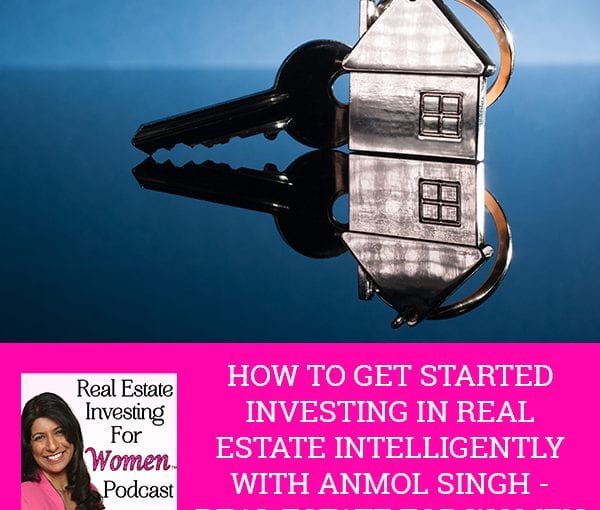









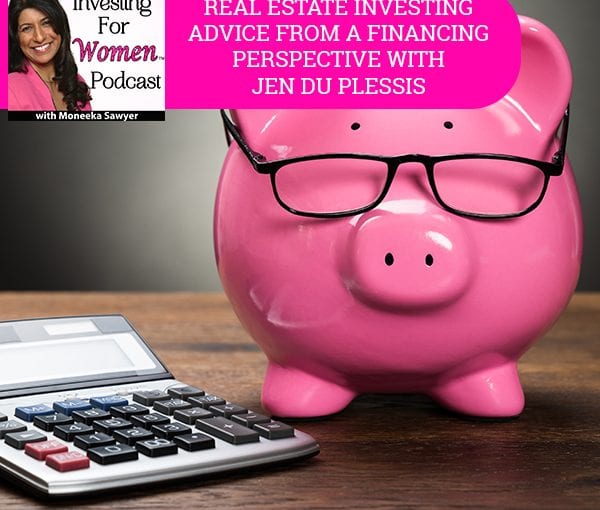
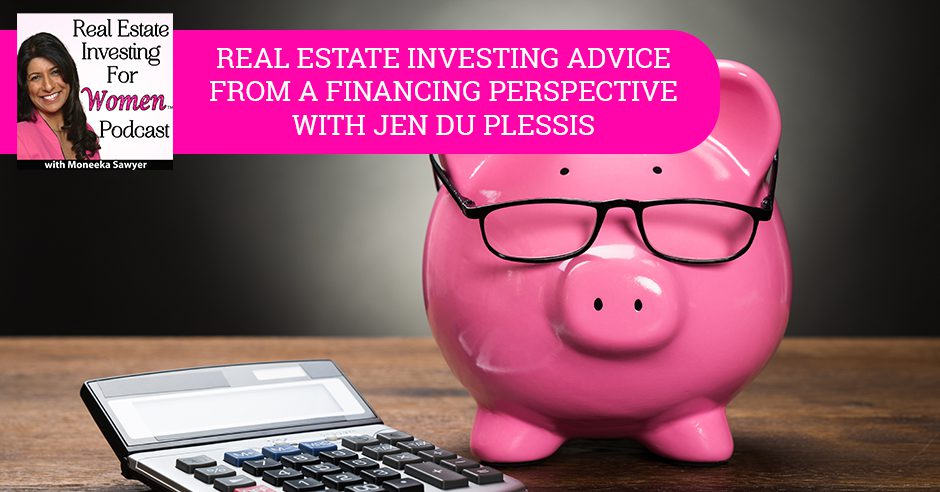


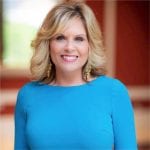 Jen Du Plessis, America’s Mortgage Mastery Mentor helps mortgage loan officers and real estate agents who are overwhelmed, stressed out, and sabotaging their personal lives for the sake of their business to multiply results in record time and have the courage to say yes to their personal lives (which sometimes means saying no to clients).
Jen Du Plessis, America’s Mortgage Mastery Mentor helps mortgage loan officers and real estate agents who are overwhelmed, stressed out, and sabotaging their personal lives for the sake of their business to multiply results in record time and have the courage to say yes to their personal lives (which sometimes means saying no to clients).